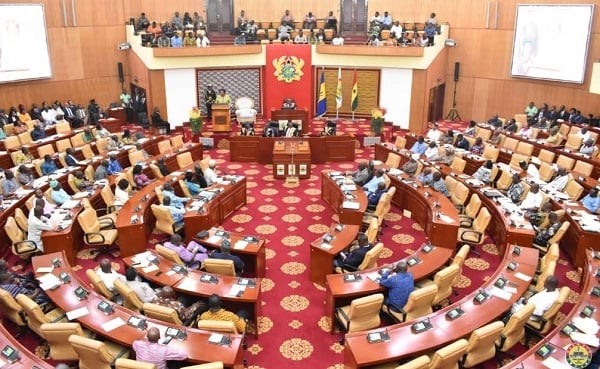Paragraph 1: A Landmark Investment in Parliamentary Capacity
Ghana’s Parliament has embarked on a transformative journey to bolster its oversight of the nation’s economic and financial landscape. A significant £800,000 grant from the World Bank, complemented by support from the United Kingdom’s Foreign, Commonwealth and Development Office (FCDO), has paved the way for an 18-month capacity-building programme. This initiative, aptly titled "Building the Capacity of Parliamentarians for Economic and Financial Governance," aims to equip lawmakers, particularly newly elected members, with the technical expertise necessary for rigorous scrutiny of economic policies, public expenditures, and crucial fiscal decisions. The programme signifies a strategic investment in strengthening parliamentary independence and enhancing the effectiveness of Ghana’s democratic institutions.
Paragraph 2: Empowering Parliament for Enhanced Fiscal Oversight
The launch of this capacity-building programme marks a pivotal moment in Ghana’s pursuit of stronger parliamentary accountability. Speaker of Parliament, Rt. Hon. Alban Sumana Kingsford Bagbin, hailed the initiative as a "timely intervention" designed to deepen parliamentary scrutiny of national finances. By providing Members of Parliament with essential skills and knowledge, the programme seeks to foster greater transparency and accountability in the management of public resources. This empowerment of Parliament is crucial for ensuring effective governance and enhancing public trust in the country’s fiscal management.
Paragraph 3: International Collaboration for Improved Governance
The collaborative nature of this programme underscores the international community’s commitment to supporting good governance in Ghana. The World Bank’s financial backing, coupled with the UK government’s support through the FCDO, demonstrates a shared belief in the importance of strengthening parliamentary capacity. Michelle Keane, Acting Country Director for the World Bank in Ghana, Liberia, and Sierra Leone, emphasized the need to equip parliamentary committees with the technical knowledge required to effectively evaluate government budgets and fiscal performance, aligning economic policies with sustainable development goals. British Chargé d’Affaires Keith McMahon echoed this sentiment, highlighting the UK’s commitment to supporting Ghana’s institutions in their efforts to deliver prosperity for its citizens.
Paragraph 4: A Comprehensive Approach to Capacity Building
The programme’s scope is comprehensive, targeting key parliamentary committees responsible for finance, budget, public accounts, economy, development, and government assurances. Furthermore, staff from the newly established Office for Parliamentary Analysis and the Citizens’ Bureau will receive technical support, further strengthening Parliament’s analytical capabilities. Training will encompass critical areas such as public financial management, macroeconomic forecasting, tax policy, and equitable growth strategies. The development of training materials, handbooks, and toolkits will provide ongoing support to MPs and committee staff, ensuring the sustainability of the acquired knowledge and skills.
Paragraph 5: Fostering Collaboration and Knowledge Sharing
Beyond formal training, the programme will promote peer-learning exchanges with other parliaments, facilitating the sharing of best practices and experiences. Enhancing engagement between Parliament and civil society, think tanks, and private sector actors is another key component, aimed at bridging knowledge gaps and fostering a more informed and inclusive policymaking process. This multifaceted approach will contribute to a more robust and responsive Parliament, better equipped to address the complex challenges facing Ghana’s economy.
Paragraph 6: Towards a More Transparent and Accountable Parliament
The long-term objectives of this capacity-building programme extend beyond immediate skill enhancement. The initiative aims to foster a culture of transparency within Parliament by encouraging greater access to parliamentary data for both the media and the public. This will empower citizens to engage more effectively in national economic debates and hold their elected representatives accountable. By supporting MPs in making evidence-based contributions to policy discussions, the programme seeks to elevate the quality of public policy and ensure that public funds are utilized effectively for the benefit of all Ghanaians. Speaker Bagbin’s expression of gratitude to the World Bank and the FCDO underscores the significance of this partnership in strengthening Parliament’s institutional capacity and upholding democratic accountability. This groundbreaking initiative represents a decisive step towards a more informed, empowered, and transparent Parliament, capable of shaping sound economic policies and ensuring robust oversight of government actions, ultimately contributing to a more prosperous and equitable Ghana.














